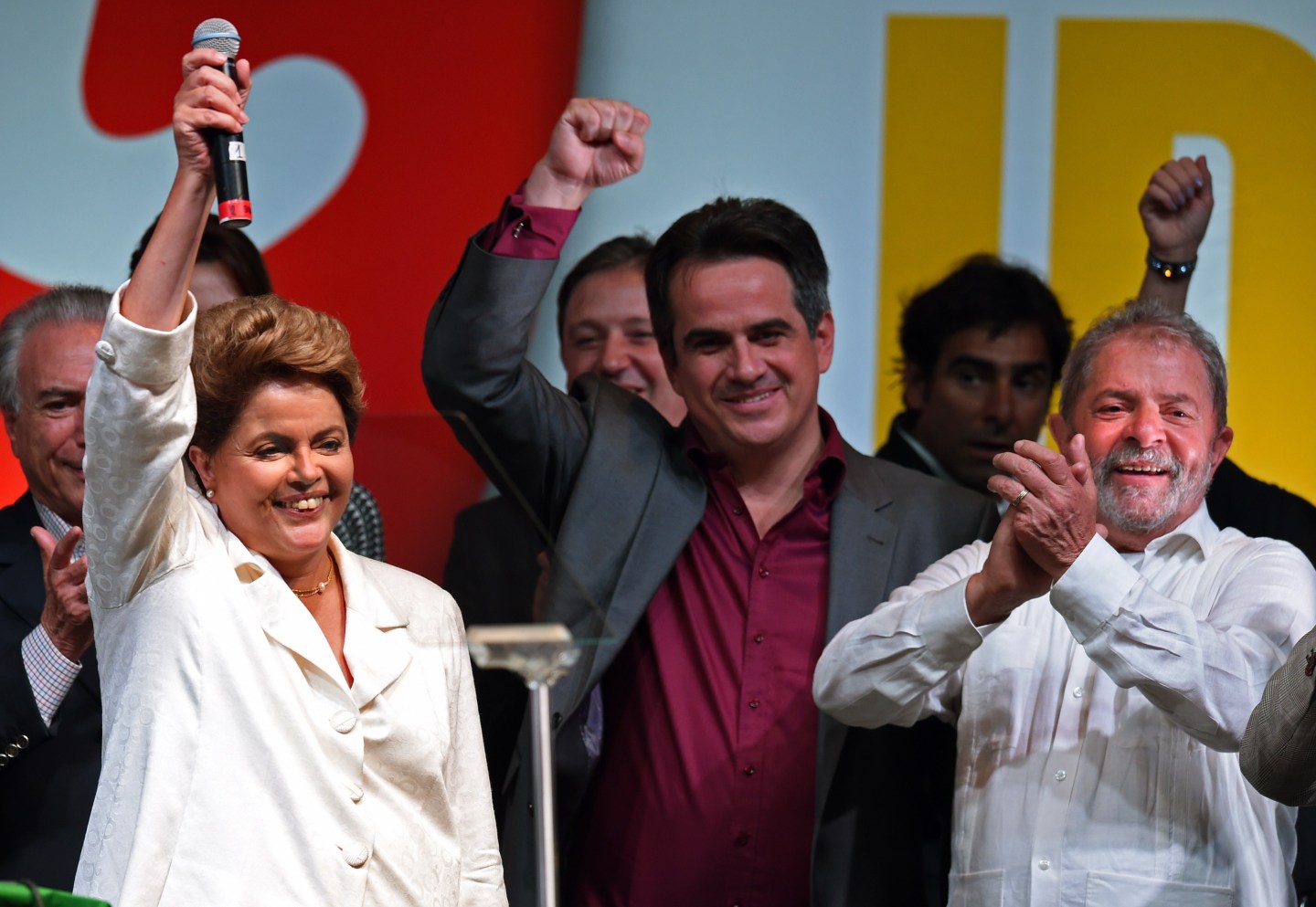Brazil narrowly re-elected left-wing President candidate Dilma Rousseff Sunday, after a bitterly contested run-off against center-right candidate Aecio Neves.
Rousseff triumphed with just over 51.6% of the vote to a little under 48.4% for Neves, Reuters reported. In a campaign that had descended into political mud-slinging, voters ultimately gave more credence to Rousseff’s claims that Neves would dismantle the programs that raised living standards for the poor, than to Neves’ accusations of corruption and economic mismanagement by Rousseff’s Workers Party, or PT.
The poll was the third successive presidential victory for the PT, and came despite a sharp slowdown in growth since the financial crisis, which critics say illustrates how much Rousseff and her predecessor, Luis Inacio Lula da Silva, relied on booming commodity prices to create an aura of prosperity. The country slid into recession earlier this year, and the International Monetary Fund forecasts growth of only 0.3% for 2014. The budget deficit has risen for the last three years in a row, meanwhile.
Lula’s legacy of alleviating poverty and reducing inequality enabled Rousseff to carry almost all of the country’s poorer northern states, while Neves failed to mobilize enough of the vote in the richer southern states to compensate.
In a victory speech to supporters, Rousseff appeared to acknowledge how much she owed to her predecessor’s record rather than her own.
“I call on all Brazilians, without exception, to unite in favor of Brazil’s future,” Reuters quoted her as saying. “I want to be a much better president than I have been until now.”
Investors in Latin America’s largest economy will need some convincing, though. The real fell to its lowest level in over nine year against the dollar as Rousseff cemented her lead in the polls, while the country’s benchmark stockmarket index has fallen over 15% during the election campaign.
“Hopes for reform to address Brazil’s structural economic problems have been dimmed, if not dashed,” said Craig Botham, emerging markets economist at U.K. fund manager Schroders in London. “Though the president has claimed she will address macroeconomic concerns, we have heard these promises before without seeing matching policy action.”
Botham said Rousseff was only to change course “under extreme market duress”–something that might not be too far away if Brazil loses its ‘investment grade’ status with international ratings agencies. Standard & Poor’s currently has it at BBB-, the lowest rating still to qualify as investment grade, while Moody’s and Fitch both have it one notch higher, albeit Moody’s has a negative outlook.






